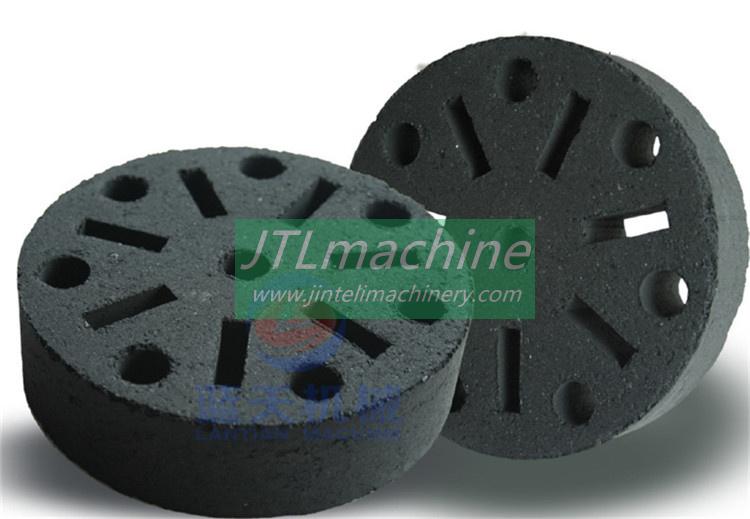Table of Contents
Setting Up a Machine for Charcoal BBQ Factory: Key Considerations and Benefits
Setting up a machine for a charcoal BBQ factory involves several key considerations, each crucial to the success and efficiency of the operation. The process begins with selecting the appropriate machinery, which plays a pivotal role in determining the quality of the final product. High-grade coal briquette plants require machinery that is not only efficient but also capable of producing consistent and high-quality briquettes. These machines typically include crushers, mixers, briquette presses, and dryers. Each component must be chosen based on the specific needs of the factory, taking into account the desired production capacity and the characteristics of the raw materials used. One of the foremost considerations is the quality of the raw materials. High-grade coal is essential for producing premium charcoal briquettes. The quality of the coal directly influences the burning efficiency and the overall performance of the briquettes. It is imperative to source coal that is free from impurities, as these can affect the briquette’s combustion and produce unwanted emissions. Additionally, the moisture content of the coal must be carefully monitored and controlled. Excessive moisture can hinder the briquetting process and reduce the quality of the final product. The selection of the briquette press is another critical factor. This machine is responsible for shaping the coal into uniform briquettes. Advanced briquette presses come with adjustable pressure settings, allowing operators to control the density and durability of the briquettes. High pressure is necessary to produce dense and durable briquettes that burn longer and provide consistent heat. Moreover, modern briquette presses are designed to minimize energy consumption and maximize production efficiency, making them a valuable investment for any charcoal BBQ factory. Once the briquettes are formed, they must be dried to reduce their moisture content and improve their storage stability. Dryers play a crucial role in this phase of production. Efficient drying systems ensure that the briquettes reach the optimal moisture level, enhancing their combustion properties and shelf life. There are various types of dryers available, including rotary dryers and belt dryers, each with its advantages. The choice of dryer depends on the production volume and the specific requirements of the factory. Transitioning to the benefits, setting up a high-grade coal briquette plant offers numerous advantages. Firstly, it provides a sustainable solution for utilizing coal fines and dust that would otherwise go to waste. By converting these materials into valuable briquettes, factories can reduce waste and contribute to environmental conservation. Additionally, high-grade briquettes produced by such plants are in high demand for their superior burning qualities. They burn cleaner and more efficiently than traditional charcoal, making them an attractive option for both domestic and commercial use. Furthermore, the establishment of a charcoal BBQ factory can create significant economic opportunities. It generates employment and stimulates local economies by creating demand for raw materials and machinery. The production of high-grade briquettes also opens up new markets, both domestically and internationally, providing a steady revenue stream for the factory. In conclusion, setting up a machine for a charcoal BBQ factory involves careful consideration of various factors, from the quality of raw materials to the selection of appropriate machinery. By focusing on these aspects, factories can produce high-grade coal briquettes that offer numerous benefits, including efficient combustion, environmental sustainability, and economic growth. The successful implementation of such a plant requires a strategic approach, ensuring that each component of the production process is optimized for maximum efficiency and quality.High-Grade Coal Briquette Plant: Essential Machinery and Production Process
A high-grade coal briquette plant serves as a pivotal component in the production of charcoal briquettes, transforming raw materials into a consistent, high-quality fuel source for barbeques and other applications. The machinery used in such a plant is meticulously designed to ensure efficiency and quality at every stage of the production process. Understanding the essential machinery involved and the steps they perform offers valuable insight into the inner workings of a high-grade coal briquette plant. The process begins with the preparation of raw materials, typically comprising coal dust or charcoal powder, which must be finely ground to a uniform size. This is achieved using a crusher, an essential piece of equipment that pulverizes large chunks into a fine powder. Following this, a drying machine is employed to reduce the moisture content of the raw material, as excessive moisture can adversely affect the briquette quality and combustion efficiency. The drying process is critical, as it ensures that the material is in optimal condition for further processing. Once the raw materials are adequately dried, they are transferred to a mixing machine. Here, binders such as starch, clay, or molasses are added to the coal or charcoal powder. The role of the binder is crucial, as it imparts the necessary adhesive properties to the powder, enabling it to be formed into solid briquettes. The mixing machine ensures that the binder is evenly distributed throughout the material, creating a homogeneous mixture that will form durable and consistent briquettes. After the briquettes are formed, they undergo a drying process to remove any residual moisture and harden them further. This is typically achieved using a drying oven or kiln, which subjects the briquettes to controlled heat over a specific period. Proper drying is essential to ensure that the briquettes achieve their optimal hardness and burning characteristics.
The final stage in the production process involves packaging the finished briquettes. Packaging is more than a logistical step; it protects the briquettes from environmental factors such as moisture and dust, which can degrade their quality. Automated packaging machines are often used to package the briquettes efficiently, ensuring that they are ready for distribution and use.
In conclusion, the production of high-grade coal briquettes involves a series of meticulously orchestrated steps, each reliant on specialized machinery. From the initial preparation of raw materials through to the final packaging, every stage is designed to ensure the production of high-quality, consistent briquettes. This systematic approach not only enhances the efficiency of the production process but also ensures that the end product meets the stringent standards required for use in charcoal BBQs and other applications. Understanding the machinery and processes involved highlights the complexity and precision required to produce high-grade coal briquettes, underscoring the importance of each step in achieving the desired quality and performance.
After the briquettes are formed, they undergo a drying process to remove any residual moisture and harden them further. This is typically achieved using a drying oven or kiln, which subjects the briquettes to controlled heat over a specific period. Proper drying is essential to ensure that the briquettes achieve their optimal hardness and burning characteristics.
The final stage in the production process involves packaging the finished briquettes. Packaging is more than a logistical step; it protects the briquettes from environmental factors such as moisture and dust, which can degrade their quality. Automated packaging machines are often used to package the briquettes efficiently, ensuring that they are ready for distribution and use.
In conclusion, the production of high-grade coal briquettes involves a series of meticulously orchestrated steps, each reliant on specialized machinery. From the initial preparation of raw materials through to the final packaging, every stage is designed to ensure the production of high-quality, consistent briquettes. This systematic approach not only enhances the efficiency of the production process but also ensures that the end product meets the stringent standards required for use in charcoal BBQs and other applications. Understanding the machinery and processes involved highlights the complexity and precision required to produce high-grade coal briquettes, underscoring the importance of each step in achieving the desired quality and performance.





